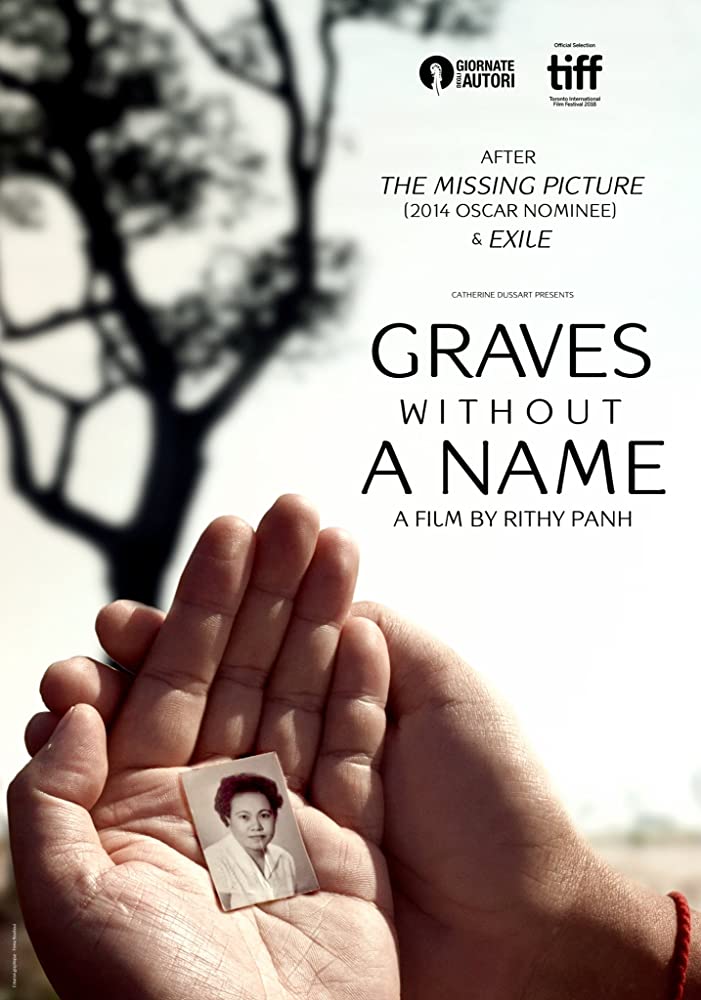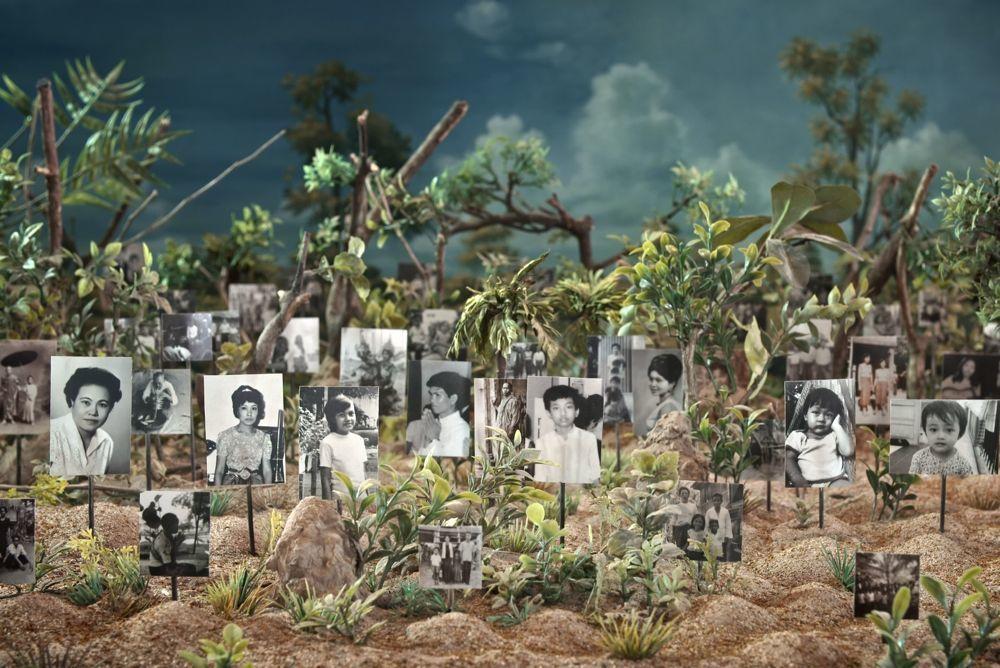Doc Corner: Rithy Panh's 'Graves Without a Name'
 Wednesday, May 6, 2020 at 2:00PM
Wednesday, May 6, 2020 at 2:00PM By Glenn Dunks
 It is not very often an autobiographical documentary about genocide is selected to open a prestigious strand of one of the biggest film festivals in the world. I suppose that’s what being the first filmmaker to, among other things, land an Oscar nomination for Best Foreign Language Film with a work of non-fiction does to one’s reputation. Director Rithy Panh has forged his career through telling the stories of his Cambodian homeland and it’s a testament that despite what may be considered tunnel vision for other filmmakers, this is his 18th feature, he continues to find new and interesting angles to investigate.
It is not very often an autobiographical documentary about genocide is selected to open a prestigious strand of one of the biggest film festivals in the world. I suppose that’s what being the first filmmaker to, among other things, land an Oscar nomination for Best Foreign Language Film with a work of non-fiction does to one’s reputation. Director Rithy Panh has forged his career through telling the stories of his Cambodian homeland and it’s a testament that despite what may be considered tunnel vision for other filmmakers, this is his 18th feature, he continues to find new and interesting angles to investigate.
After detours through a colonial archival scrap-book in France is Our Mother Country and meditative stargazing experimental curiosity Exile, Panh has returned to the more earthbound terrain of his Oscar-nominated The Missing Picture (my no. 1 documentary of the decade). A film as rooted in the mud and the dirt that built that film its signature image of gaunt and decaying figurines, Graves finds Panh on an even more personal mission than that film...

Returning to Cambodia from his émigré home of France, Panh seeks to find the mass graves of his family; laying unmarked somewhere with untold others, their spirits materializing here and there yet offering little tangible clues.
He begins his journey shaving his head in a Buddhist temple, perhaps a symbol for his personal return to “Year Zero” or perhaps just a personal acknowledgment of the role faith will play moving forward. Panh experiments with a variety of methods to communicate with… well, not with the souls or the ghosts of his family necessarily, but with the ground in which they are buried. It is a rare film, documentary or otherwise, that touches on the personal weight of being a survivor of genocide. The “impossible mourning” that one carries with them after such a trauma like the rocks he collects, polishes, burns and then packs neatly in an urn like cremated ashes of bodies he will never find.
He again uses a variety of media, most memorably a return to the clay dioramas of The Missing Picture, but this time populated with real photographs of the deceased; a startling and deeply profound visual representation of the very real lives once brutally and unceremoniously extinguished and thrown into the soil. A detail only deepened by the director’s interactions with the rural Cambodians who live on and tend to the land to this day and tell of their experiences under the regime that killed an estimated two million people, a quarter of the nation’s population, where a single spoon for eating was considered a luxury.

Despite its focus on the ground below, Panh’s 18th feature ends with a simple work of visual trickery that looks towards the heavens. Like Exile with its preoccupation with the moon and stars in the face of equally solemn material, Graves Without a Name attempts to perhaps find some sort of solace amid the near exhaustive pain that its director uncovers. A soaring movement across the Cambodian landscape towards a bright amber-coloured sun. Through narration, once again spoken in French by Randal Douc, Panh notes that he is familiar with the image of death; Cambodia being a place where the living and the dead are too eerily close. But in these final moments it feels as if perhaps he has found something within himself that speaks beyond all of that. The horrors that lay so uncomfortably close to the surface across Cambodia are impossible to forget, nor should they be, but if Panh's next film finds him looking at other concerns of his childhood home—like Graves hints at and which reviews out of Berlin suggest Irradiated does—then maybe he found something out there on the land after all.
Release: Out on DVD and VOD on May 12.
Oscar chances: I don't know if it will be eligible, but if the documentary branch didn't go for The Missing Picture I doubt they'll go for this one (although it would be a worthy nominee).
 Doc Corner,
Doc Corner,  Review,
Review,  Rithy Panh,
Rithy Panh,  documentaries
documentaries 


Reader Comments (3)
This was Cambodia's submission for Best Foreign Film in 2018. I don't know if it was also considered for documentary that year. I saw it at the Toronto Film Festival that year, so I don't know if it could still be eligible two years later.
Ken, as far as I am aware it has not received a traditional theatrical release for be eligble, although I may be forgetting if it was on the longlist last year due to whatever technical processes these things happen. I saw it quite some time ago, too, and rewatched parts for the review.
Thanks for your review Glenn! I loved The Missing Picture, so I would like to see this new film from Rithy Panh!